Property Management

Course Curriculum
| Property Law and Taxation for Accountants and Lawyers | |||
| Module 01: The Property Law and Practice | 00:23:00 | ||
| Module 02: Ownership and Possession of the Property | 00:16:00 | ||
| Module 03: Co-Ownership in Property | 00:17:00 | ||
| Module 04: Property Taxation on Capital Gains | 00:16:00 | ||
| Module 05: VAT on Property Taxation | 00:11:00 | ||
| Module 06: Property Taxation Tips for Accountants and Lawyers | 00:16:00 | ||
| Module 07: Changes in the UK Property Market | 00:14:00 | ||
| Mock Exam | |||
| Mock Exam – Property Management | 00:20:00 | ||
| Final Exam | |||
| Final Exam – Property Management | 00:20:00 | ||
| Assignment | |||
| Assignment – Property Management | 6 days, 3 hours | ||
UK Property Management involves overseeing residential or commercial properties, ensuring compliance with property laws, and managing rent, maintenance, and tenant relations.
Property management in the UK includes tasks like rent collection, maintenance, property inspections, and ensuring compliance with local regulations.
The main types of property ownership in the UK include freehold, leasehold, and commonhold, each with distinct rights and responsibilities.
You will gain insights into how VAT is applied to property transactions, including residential and commercial properties, and how it impacts property management.
A property manager in the UK typically earns between £30,000 and £40,000 per year, with salaries varying depending on location, experience, and the type of properties managed.
The course explores current trends and developments in the UK property market and their implications for property management and investment.
Yes, the course is designed for both beginners and professionals, providing foundational knowledge and advanced topics in property management.
Graduates can pursue roles such as property managers, residential and commercial lettings agents, property valuers, estate managers, and more, with competitive salaries across the UK.














